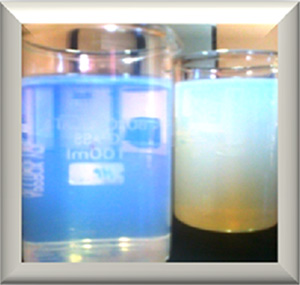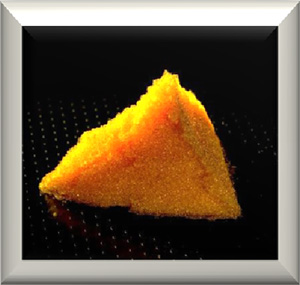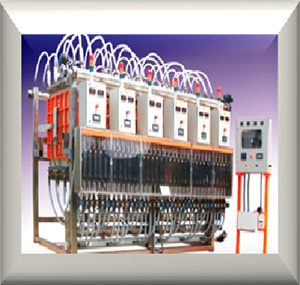Electrodialysis Application
Colloidal Silica Manufacture
Phase Transfer Catalysts Manufacture
Desalination of fruit juice
Removal of tartaric acid from wineDesalination of pharma / chemical intermediates
Desalination of cheese whey
Desalination of soy sauce
Production of amino acids from amino acid salts
Desalination of starch sugar, soybean saccharide, xylose and xylito desalination
Acid recovery from stainless steel pickling effluent
Recovery of electroplating solutions
Production of acid and alkali from inorganic salts/industrial waste streams
Acid recovery of aluminum foil pickling process
Production of organic acid from organic acid salt
Colloidal Silica Manufacture.
Laxminarayan Technologies, a premier projects company providing world class Silica Sol Manufacturing plants on a turnkey basis with resources and experience to supply anywhere in the world. We offer complete Aqueous Colloidal Silica manufacturing plants on a turnkey basis. Our services cover complete techno-commercial aspects of an Aqueous Silica Sol manufacturing plant:
- Complete Plant Design & Layout.
- Selection of Appropriate manufacturing process and materials.
- Design, Manufacture, Erection and Commissioning of plant machinery.
- Technical Know how.
- Onsite Training in manufacturing process.
- Setting up of cost and quality control systems.

We have also been a leading manufacturer supplier of Aqueous Colloidal silica since 1986 in India using both Ion exchange and Electrosol processes.
We put this vast experience to design manufacture and supply new Silica sol plants with the latest and most cost effective technologies. Our expertise and resources enable us to offer these services anywhere in the world.
Colloidal silica, also known as Silica Sol, is a stable dispersion of millimicron size SiO2 particles in water. The silica particles are non-agglomerated, spherical in shape, negatively charged, and stabilized with a counter ion. The surface of the sol is composed of silanol groups which are partially ionized. The sodium ion is present as a counter ion and the resulting system is in equilibrium.
PRODUCT LINE:
According to industrial requirements sols with a wide range of properties are produced. Particle sizes range from 7 to 20 nanometers and concentrations from 10% to 40%, thus providing many different sol characteristics. The general properties of an Aqueous Silica sol would be:
- Nature : Colloidal
- Dispersion media : Water
- Dispersed phase: SiO2 particles of 7nm to 25nm size.
- Ph: Mild Alkaline. 8.5 to 10.2 @25C.
- Sp.Gr: 1.07 to 1.38 @ 20C.
- SiO2 content : 10% to 40% w/w
- Stabilising Counterion: Sodium. (other cations for specific applications)
- Titrable Alkali: 0.6% max w/w as Na2O.
- Salt content: 0.06N as Na2SO4.
- Other elements: traces (ppm levels).
STABILITY OF SILICA SOLS:
Ph is an important factor that affects the stability of Silica sols. Below pH 2.5 and from 5 to 7, silica sols are unstable and will jell immediately. Above pH 10.6 the silica will start to dissolve and jell.
STABILITY WITH OTHER CHEMICALS:
Silica Sols are stable with anionic or non-ionic chemicals such as wetting agents or emulsifiers and also with water-miscible solvents such as alcohols, glycols, and other polar solvents. It is not compatible with non-polar or water immiscible solvents. Silica sols have limited stability in presence of electrolytes and cations.
TEMPERATURE EFFECTS:
When frozen irreversible precipitation will occur. Under conditions where it is subject to evaporation or boiling, gelling can occur rapidly.
APPLICATIONS OF SILICA SOLS:
- Investment Casting or Lost Wax Process of Casting metal.
- Lost Foam process of casting metal.
- Thermal Insulation (Silica-Alumina
- Ceramic Fibre board forming).
- Catalyst Manufacture – The carrier.
- Textile / Fibers – Reduces fly during spinning, increases yarn strength and improves dye absorbing properties of the fabric.
- Frictionizing – imparts anti-slip properties to cartons, yarns, etc….
- Protective Coatings – for marine paints.
Additional Uses.
COMMERCIAL MANUFACTURING PROCESSES FOR AQUEOUS COLLOIDAL SILICA:
THE ION EXCHANGE PROCESS:

This is a batch process where, Dilute Sodium silicate is dealkalised with a wet, drained, regenerated cation exchange resin. The stabilised liquor is then concentrated by filtration to form the finished product. The Ion exchange resin process consumes large quantities of mineral acid and consequently generateslarge volumes of acidic effluent which soon makes this industry unviable as effluent treatment and disposal is not
economic.Further due to unpredictable resin behavior (channeling /fouling/bead breakdown/column choking) in the column, the product quality and quantity could vary from batch to batch.
THE ELECTROSOL PROCESS:
This is a batch process where, Dilute Sodium silicate is dealkalised in an Electrodialysis / EDBM plant to form a 6%to10% Silica sol. The stabilised liquor is then concentrated by filtration to form the finished product. The filtrate is recycled to constitute the next batch.There is hardly any process water consumption, making it a completely zero effluent process. No acid is consumed, no effluent is generated and the

removed Sodium is concentrated as 20% Caustic soda lye which can be a saleable byproduct of good value.Consistent product quality and different product grades can be produced.
This process means better process economics, eco-friendly and consistent product quality.
